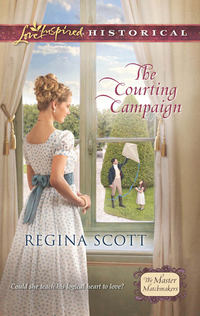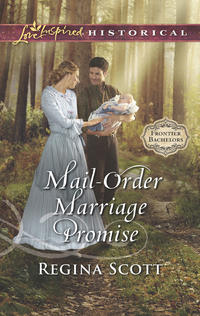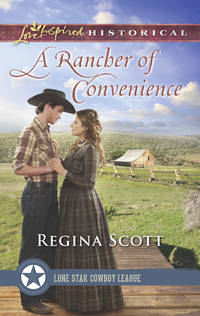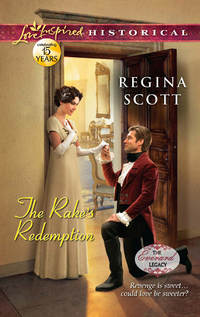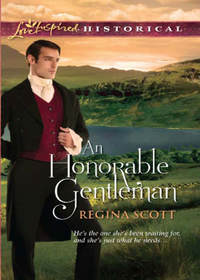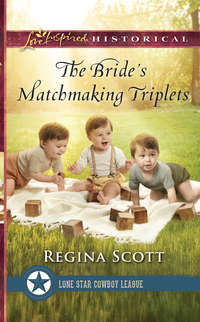
Полная версия
The Rake's Redemption
Chapter Two
Imogene watched her mysterious stranger stride away, the crowds parting before him. Even if she could have escaped the tenacious grip of her hostess, she could hardly chase after him; she’d already made a spectacle of herself by insisting on a dance. And she hadn’t even learned his name!
“That was very foolish,” Elisa’s mother scolded, scanning the room. “Where is your mother? I’m certain she’ll have something to say about the company you keep.”
Imogene stilled. Mrs. Mayweather knew the man. Of course she knew the man! She’d invited him. But she didn’t seem particularly pleased by the fact. Her hostess’s face was an unbecoming shade of red that clashed with the rust-colored velvet of her ball gown. Each tightly wound gray curl, the lift of her hawkish nose, the compression of her already thin lips shouted righteous indignation. Small wonder Elisa tended to hide behind columns.
“I’m sorry if I offended you,” Imogene said. “Naturally I assumed anyone you invited would be an acceptable partner.”
The red faded, leaving Mrs. Mayweather as pale as fine muslin. “Certainly we only invite the best,” she said, dropping her grip on Imogene’s arm. “I cannot help it if some families have members who distain their honor.”
So he was dishonorable? She ought to have expected it. Certainly her father’s reaction to him had made him seem dangerous, dastardly. But that had not been her impression as they’d danced. The fire in him burned through the polite malaise of the other lords and ladies. Like a hearth on a cold day, it called to her. Oh, he was an outrageous flirt, holding her gaze and fingers far longer than needed, but nothing about his demeanor or conversation spoke of an evil lurking inside.
Lord, please help me know the truth!
“And what family would that be, precisely?” Imogene asked.
Mrs. Mayweather frowned down at her. “You didn’t know? My dear girl, you have been most shamefully used. That...that creature was none other than Mr. Vaughn Everard, who dares to call himself a poet. Surely you’ve heard of him.”
Certainly she’d heard of him. She had all three volumes of his poetry in her bedchamber, the pages dog-eared from repeated reading. That’s why she’d recognized his phrase about dancing! But wait. “Everard?” she asked, stomach tightening. “Then is he related to...”
“Lady Everard,” Mrs. Mayweather said, making the last name sound like something she’d found clumped to the bottom of her shoe. “Indeed, he is her cousin. I tried with the greatest tact to suggest that she leave him home, but she would hear none of it. They say she wears his heart about her neck like her pearls.”
He was also one of Lady Everard’s followers? Imogene could only feel disappointed in him; from his beautiful poetry she’d somehow thought he’d be more discriminating. In fact, for a moment on the dance floor, she’d wondered whether she’d finally found the suitor she’d been praying for—someone who could help her protect the family name, as her father’s only living child.
But why was he interested in her family? How had her father even become acquainted with one of London’s most infamous poets?
“Now, then,” Mrs. Mayweather said soothingly, evidently taking Imogene’s silence for shocked propriety, “we’ll say no more on the matter. I’m sure any of the other fine gentlemen will be only too happy to partner with you for the next set.”
Imogene thanked Mrs. Mayweather and watched her bustle away, but dancing was the last thing on her mind. She had only one goal now. How could she meet Vaughn Everard again and learn more?
* * *
In the shadow of one of the alabaster columns, Vaughn watched Lady Imogene. She’d managed to escape her diligent hostess, leaving the woman in charity with her if the smile on Mrs. Mayweather’s face was any indication. Now she flitted about the ballroom, talking to this young lady, that gentleman, a bee buzzing from flower to flower.
She was obviously as good at talking her way out of a scrape as she was getting into one. Yet why would the Marquess of Widmore’s daughter—beautiful, wealthy, charming—ask him to dance? He could find a way to put the question to the lady, along with other questions on his mind, but still he hesitated. He knew his best chance in meeting the marquess lay in charming Imogene, but he had never countenanced using others for personal gain. He’d seen firsthand the pain and devastation that followed.
Besides, that smile was too knowing, too confident, and he had a feeling that jade gaze could pierce flesh and see inside him. Yet if she had seen inside him, she would never have asked him to dance. No, he’d been handed an opportunity to gain the attention of the Devary family. He’d be a fool not to take it.
Keeping her ever in sight, he moved around the edge of the ballroom. He tensed for a moment when the affable Lord Eustace bowed over her hand, but she sent him off with a wave and a laugh that sparkled as brightly as her gaze. She didn’t intend to dance, then. Odd. Why would one of the most beautiful and eligible women in the room refuse to take the floor, except on his arm? He ought to feel honored, yet he couldn’t believe honor had been her motive.
Her friend saw him before Lady Imogene did. With her coal-black hair and hawkish nose, the young lady now standing beside the marquess’s daughter was a Mayweather, he guessed, although one of the prettier ones. Her brown eyes widened, and she stopped in midsentence to flutter her ivory fan in front of her face. Lady Imogene turned, then blinked.
Vaughn bowed. “Lady Imogene, your servant. You asked me to dance earlier. I thought to return the favor.”
Her brows went up as if she had not expected him to know her name. “Mr. Everard,” she replied. “I fear dancing with you was so thrilling I haven’t been able to retake the floor since. Perhaps a promenade instead?”
Her smile told him his face had betrayed his surprise that she knew him, too. It seemed her previous invitation had not been all innocence. But a promenade would give them more of an opportunity to be alone, or at least as alone as was possible in a crowded ballroom. He offered her his arm. “Charmed.”
“Imogene.” The word was a mere whisper of anguish from her friend. She, at least, was concerned about the damage to Lady Imogene’s reputation. One interaction could be poor judgment. Two might mean poor character.
Imogene reached out a hand and patted her friend’s. “Never fear, Miss Mayweather. I’m fairly certain Mr. Everard doesn’t bite. And I’ll be back before you know it.”
With a dazzling smile that almost made Vaughn rethink his strategy yet again, Imogene put her hand on his arm, and they set off around the ballroom.
* * *
Thank You, Lord!
Imogene nearly said the praise aloud. She’d been quizzing her friends about this man, until even Kitty and Elisa were teasing her about her sudden tendre for the fellow. She could not tell them that it was hardly amour that moved her.
Oh, he was handsome enough with that white-gold hair like a yard of the finest silk and those impossibly deep brown eyes like melted chocolate. And one could hardly fault his address, standing tall and lean and so very sure of himself. He took each step as if claiming the polished wood floor for England.
But what she needed to know was his character and background. Surely they would give her some notion as to his business with her father. How wonderful that she’d been given this opportunity!
“How do you know my father?” she asked just as he said, “Is your father in attendance?”
Imogene laughed. He smiled, a warm, open smile that invited her closer, promised it was meant for her alone. Too bad it disappeared as quickly as it had come.
“Forgive me,” he said. “Ladies first.”
“My father wasn’t able to join us,” she said, answering his question. “I didn’t know you were acquainted.”
She waited, hoping for similar honesty. He turned slightly toward her, lips poised to respond, and she sighted Mrs. Mayweather headed in their direction, eyes narrowed. “Oh, dear.”
He must have seen the danger, too, for he expertly steered Imogene away. Once they had put a row of columns between them and their hostess, he said, “Your father and my uncle were good friends.”
Friends? Had she ever been introduced to an Everard old enough to be his uncle? Her confusion must have been written on her face, for he clarified. “Arthur, Lord Everard. You must have met him.”
Imogene shook her head. “I’m sorry. I don’t recall. What does he look like?”
“Tall, lean, fair-haired—a great deal like me, actually.”
Imogene beamed at him. “Forgive me. A gentleman that handsome would be difficult to forget.”
He chuckled, then stiffened and guided her behind the dowager’s circle. The older ladies batted their eyes and waved their fans as he passed, and he nodded and smiled encouragement to them.
On the opposite side of the circle, his cousin, Lady Everard, looked far less encouraging, her pretty face scrunched up in confusion. She had thick golden hair, worn up high and cascading down her back, and dark brown eyes that must run in the family, for they were very like his. Every girl in the room would be wondering how to copy that gown—clear muslin over an underskirt spotted in gold so that it sparkled as she moved.
“I fear our promenade will end all too soon,” he murmured to Imogene. “Do me the honor of answering two more questions.”
“Anything,” she said, then chided herself on her eagerness.
“First, do you remember what your father was doing the night of March third?”
What a singularly odd thing to ask! Whatever issue he had with her father must have something to do with that day. Imogene thought back. Had they been in London yet? Her father had been intent on getting them all there from their country estate. Business, he’d said, that could only be conducted in London.
Vaughn Everard was leading her toward the main entrance to the ballroom now. Framed in the doorway, her mother glanced about, obviously in search of her. Mrs. Mayweather stood beside her, foot tapping against the fine wood floor.
“I don’t remember,” Imogene said in the rush. “What’s the second question?”
“May I call on you tomorrow?”
She was so surprised she actually stopped, pulling him up short. The movement was enough for her mother to spy her and start in her direction.
“Cousin Vaughn,” Samantha Everard said behind them, her voice surprisingly hesitant for her usual confidence in the social scene. “You promised me the next dance. Have you forgotten?”
His body turned dutifully as he released Imogene, but his gaze remained on hers, waiting. She could almost see the hope.
“There you are, Imogene,” her mother said, coming up to her and taking her arm. “It’s been a long evening, dear, and I’d like to retire.”
Samantha Everard’s fingers were reaching for her cousin’s wrists even as Lady Widmore’s wrapped around her daughter’s. Before Imogene could answer him, they had parted, and she knew they would not be given the opportunity to talk again that night. She glanced at him twice as she walked with her mother to the door, but if he returned the look, she didn’t see it. Imogene felt a sigh of pure frustration escape her.
Her mother waited until they were seated in the carriage on the way home before requesting an explanation. How could Imogene refuse? Elisa Mayweather might be burdened with an overbearing mama, but Imogene knew how fortunate she was in her own mother. She hoped she’d look so lovely when she reached her mother’s age. Lady Lavinia Devary, Marchioness of Widmore, had hair that was a distinguished shade of silver, but her face was as unlined as Imogene’s, and she carried herself with an elegance her daughter envied. Even now, confronted with Imogene’s possible indiscretion, she was more concerned than censorious.
“Darling,” she said, reaching across the coach to take both of Imogene’s hands. “Why the interest in Mr. Everard? Surely you know his family is considered scandalous.”
Imogene frowned. “Are they? Why?”
Her mother’s voice was stern though her look remained concerned. “The former Lord Everard was not a gentleman, despite his title. I refused to allow him entrance to our home even though your father considered him a friend.”
Her mother was usually determined to see the best in everyone. Lord Everard must have done something terrible for her to take him in such dislike. But at least Mr. Everard had been right in calling her father and his uncle friends. “And do you find Mr. Everard so scandalous, as well? Is that why Father refuses to see him?”
Her mother squeezed her hands. “I have heard he has dueled, but I had nothing to do with your father’s decision. Still, I trust his judgment.”
“I wish I did. Something’s wrong, Mother. I can feel it.”
Her blue eyes were sad. “You are a loving daughter, Imogene, but you needn’t worry for him.”
Imogene leaned forward. “How can I not worry? He doesn’t talk to me anymore. He’s seldom home. It’s almost as bad as when Charles died.”
Her mother paled, as if even hearing the name of her lost son hurt. Imogene hurt with her.
“Your father is a very busy man,” she said, releasing Imogene’s hands, “called to serve the king in many areas. With Napoleon threatening to invade at any time, do you think something as small as a misguided poet could concern him?”
Imogene sighed. “Perhaps not, but he continues to refuse Mr. Everard entrance, even when he’s perfectly capable of receiving him. I’d like to know why.”
Her mother turned her gaze to the window. “There are a great many questions about this life that remain unanswered, Imogene. You would be wise to grow accustomed to the fact.”
She knew her mother was right. She’d never understood why her younger brother had died, why her mother had lost all the other older sisters Imogene might have had. She called Imogene her little gift from the Lord. Didn’t the fact that Imogene alone had survived and thrived mean God had some purpose for her life? Something more she was meant to do than simply dance through each Season with no thought but to her own pleasure?
I know You do, Lord! I know I was meant to save my family. Surely You have a greater plan than for all to be lost when Father dies someday. Show me the man You mean to help me gain approval to carry on the title of Marquess of Widmore!
* * *
She tried to ask her father about the problem as soon as they returned home, but Jenkins, their head footman, reported that he was still away. She hadn’t been willing to broach the subject with the marquess earlier without knowing a name. In truth, many people rapped at the door of the Marquess of Widmore: widows seeking redress from the War Office, or the Admiralty where he advised on French tactics, émigrés related to their French ancestors to request aid in rebuilding their lives in England, solicitors and land stewards needing decisions on the family investments.
Her father refused admittance to any number on a given day, depending on his plans and mood. Recently he’d been particularly difficult to pin down. He had little time for his family; he certainly had no time for strangers.
But Vaughn Everard was no longer a stranger. She had danced with him, walked with him, seen his dark eyes brighten in admiration. From his works she was certain he had a refinement of spirit that was nothing short of amazing. Why would her father have taken him in dislike?
She has missed her opportunity to find answers tonight, but that didn’t mean she had to give up. She hurried upstairs to her room, hoping for a few moments alone.
She and her mother shared a ladies’ maid, not because they couldn’t afford one for Imogene but because her mother insisted on it. Imogene thought her mother enjoyed whispering suggestions in the maid’s ear as to what gown would best suit Imogene for a particular occasion and how she should wear her hair. With Bryson busy helping her mother first, however, Imogene had time for a little more research on Vaughn Everard.
She started with Mr. Debrett’s The Correct Peerage of England, Scotland and Ireland. The two slim volumes listed every member of England’s most notable families. The Everard barony was one of the newer entries, unlike her father’s. He was the tenth Marquess of Widmore and likely to be the last, unless she succeeded in her plan. There were no male relations as far as anyone knew, and unlike the occasional barony and dukedom, marquessates could not be inherited by the female line. When her younger brother Peter Devary, Viscount Charles, had died a few years ago of a fever, her father had been even more devastated than Imogene and her mother, and Imogene knew that the inevitable end to their family name and heritage was part of his sorrow. If only she could find a suitor well-positioned enough to petition to have the title recreated in him!
But what was this? The book made no mention of Samantha Everard. According to it, Lord Arthur Everard had no issue. Imogene thumbed back to the title page and checked the date: 1802, only three years ago. Why hadn’t the publisher known about Lady Everard? She couldn’t be adopted—only heirs of the blood stood to inherit a title.
Imogene returned to the Everard page. It listed the heir presumptive as Jerome Everard, nephew of the late Lord Everard, with his brother Richard after him. And there—Imogene cradled the book and allowed her finger to linger on the name—was Vaughn Everard, with no wife noted. His father had been the third son of the first Baron Everard and the brother of the second.
That made him first cousin to Samantha Everard. Although it was not unheard of for first cousins to marry, particularly to keep a title or fortune in the family, it was still an uncommon practice. And with every gentleman in London gathered around her, Lady Everard had her pick of suitors. Surely she could spare her cousin.
Imogene heard the door open quietly behind her and set the book back on the shelf, wondering why she felt guilty. Bryson paused only long enough to curtsy respectively, then hurried to do her duty. The maid had raven hair held tightly back from her face and a long pointed nose. She chose to keep only the darkest dresses her mistress offered. When Imogene was little, she had once drawn Bryson as a raven.
Now the maid went to shutter the windows on either side of Imogene’s bed, her dress solemn against the soft blues of the room. She had closed the shutter on one side, each movement sharp and precise, when something rattled against the glass, and she recoiled.
“What is it?” Imogene asked, moving closer.
The maid turned to her, wide-eyed. “There’s a gentleman down in the garden. He seems to be throwing rocks!”
A gentleman? Who would be able to slip past the carriage house and stables, to avoid the notice of the footmen and butler? Frowning, Imogene ventured toward the window until she could peer down into the small garden below. In the light spilling from the windows above, she could see the carefully clipped hedges, the wrought-iron benches near the flowers, the stone-lined path to the stables beyond.
Someone was standing there, face turned up to her window, black cloak swirling around him like smoke from a blaze. Fingers shaking, she raised the sash.
“But, soft! What light through yonder window breaks?” Vaughn Everard called up. “It is the east, and Lady Imogene is the sun. Arise, fair sun, and kill the envious moon, who is already sick and pale with grief that thou, her maid, art far more fair than she.”
“I’ll fetch Jenkins,” Bryson said, backing from the window.
Imogene caught her arm. “Stay a moment. We’re in no danger.” As her maid frowned at her, Imogene called back. “Really, Mr. Everard, you resort to the Bard? I thought you were a man of inspiration.”
He swept her a bow, one arm wide. “I divined your room correctly, didn’t I? But alas, your beauty halts my tongue. My words could only be cursed as praise too faint.”
“A likely story,” Imogene said. “I do believe, sir, that you are lazy. You think to win me over with words alone.”
Straightening, he pressed his hand against his chest. “You wound me, my lady. Tell me what I must do to prove myself.”
“Go ahead,” she whispered to Bryson, who fled the room as if Imogene had put a brand to her skirts. To Vaughn she said, “Present yourself to the front door tomorrow at two, sir.”
He dropped his hand. “Alas, a dragon guards your bower, fair maiden. I have been refused entrance too many times, as I think you know.”
“And you, sir, pride yourself on your swordsmanship, I hear. Surely a dragon is no match for you.”
She thought he smiled. “Swords are messy. A whispered word from you might do the trick.”
Below, she heard the kitchen door open, saw a brighter light cut across his figure along with the shadows of Jenkins and one of the under footmen as they marched toward him.
“Consider yourself invited, Mr. Everard,” she called. “I shall expect you tomorrow at two. Do not be late.”
“I shall fly to your side,” he promised. With a swirl of his cape, he dashed off into the night, the staff right behind.
Imogene set down the sash and leaned against the glass, her breath quickly fogging the pane. Vaughn Everard was coming to call on her tomorrow. This time she intended to make sure he was allowed entrance, if she had to take on her father herself.
Chapter Three
Vaughn wanted to return to the Devary home the next day as soon as it was considered decent. Though he generally rose and retired whenever the mood struck him, spending his days and nights as he pleased, he knew the fashionable ladies of London usually did not receive guests until after noon. So he presented himself at the door at exactly two, as Lady Imogene had requested.
The house was becoming familiar after his many attempts to speak with the marquess. It was wide and squat with far too many furbelows around the windows and door, as if a wedding cake had taken up residence on a corner near Park Lane. He would have wagered the marchioness had approved the purchase, for surely no gentleman worth his salt would choose to live in such a house.
Though the day was bright, with the sun spearing through clouds and brightening the gray stone pavement, Vaughn’s mood was considerably darker. Even something so simple as a request to call on Lady Imogene had required him to enact a Cheltenham tragedy, resorting to Shakespeare, no less! A few moments away from the garden last night, and he was wondering again whether there was another way besides charming the lady to gain a moment of her father’s time.
So he’d tried accosting the Marquess of Widmore at White’s after convincing a gentleman friend of Jerome’s to bring him in as a guest, but the lord had not been on the premises of the heralded gentleman’s club on St. James’s. Discreet inquiries had only served one purpose: to garner Vaughn the attentions of Lord Gregory Wentworth.
Though he was the heir to the Earl of Kendrick, Lord Wentworth was a toad, his only purpose in life to curry favor with those more rich and powerful. Vaughn supposed he was handsome enough with his sandy hair pomaded back from a chiseled face and a cleft in his chin, but the fellow had no opinions save an extreme overestimate of his own worth. Because his family estate lay next to Samantha’s home in Cumberland, he seemed to think he ought to be good friends with the Everards.
But by far his worse fault, in Vaughn’s mind, was the affectation in his speech, recently acquired, according to Samantha. Lord Wentworth tended to clip off his sentences, as if his life and deeds were too grand for mere words to describe. Vaughn had little use for anyone with such a lack of appreciation for the beauty of language.
“Evening, Everard,” he had greeted Vaughn last night, strolling up to him through the clusters of gentlemen already crowding the club. His ingratiating smile set Vaughn’s back up even further. “Lost the marquess, eh?”
“If he is lost, he can be found,” Vaughn assured him, turning for the door.


